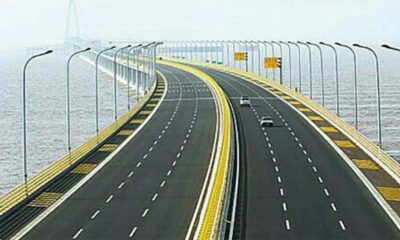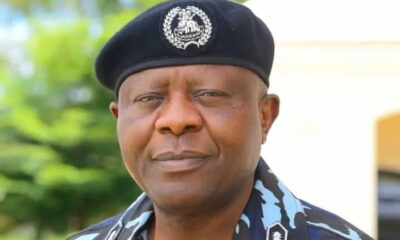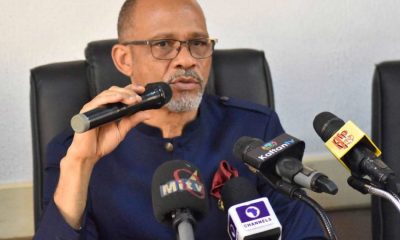“Now that the National Assembly is making a law to create additional states for the people of Southeast, it is reasonable, fair and timely to create additional local governments for Lagos State.”
News
Lagos to flag off construction of 4th Mainland bridge in 1st quarter of 2024
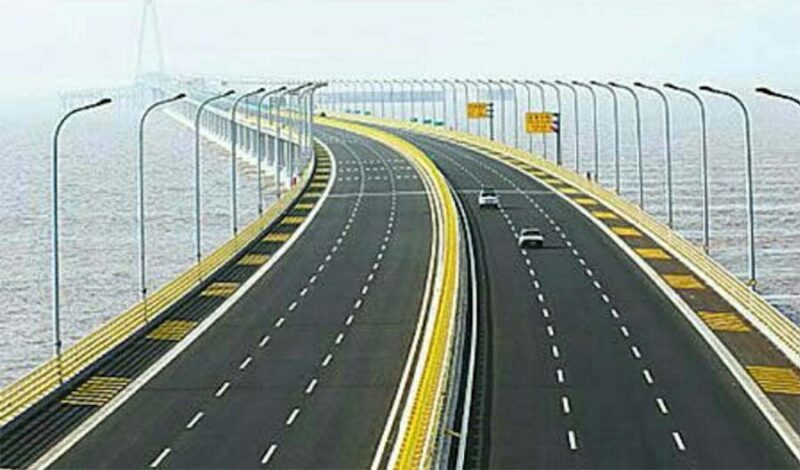
Lagos to flag off construction of 4th Mainland bridge in 1st quarter of 2024
… Experts Discuss Possible Challenges
There are indications that the Lagos State government will kick start the long-awaited 4th Mainland Bridge in the first quarter of 2024, THE WHISTLER understands.
Proposed in 2006, the project is expected to cost about $2.5 billion.
The proposed bridge is about 37 kilometres with a design speed of 140km and spans from Abraham Adesanya in Ajah to the North West towards the Lagoon shoreline of the Lagos-Ibadan Expressway through Owutu/Isawo in Ikorodu.
It is a Public-Private Partnership (PPP) project. Upon completion, it is expected to be the longest bridge in Africa with three toll plazas, nine interchanges and a 4.5km Lagoon Bridge.
Apart from opening new areas of Lagos for future developments, the project is also expected to reduce traffic congestion on the existing Carter, Eko and Third Mainland Bridges.
However, the execution of the project may face some challenges. Lagos State government had in 2015 attributed the delay in the construction of the bridge to issues around compensation, because of the number of buildings along the right of way. And had to redesign it to avoid compensations running into billions.
According to Aramide Adeyoye, a former Special Adviser on Works to Governor Babajide Sanwo-Olu, about 800 structures would be affected by the construction of the bridge.
Sanwo-Olu has about three and a half years to complete his tenure. And the 4th Mainland Bridge is one of the legacy projects he intends to complete.
Others are the 2nd phase of the Blue Line rail and Omu Creek Road, which are wholly Lagos State government projects.
Although the 4th Mainland Bridge is a PPP, the Chief Press Secretary to the governor, Gboyega Akosile, told THE WHISTLER that the government still has to put certain things in place to ensure smooth commencement of the project.
He explained that the project would have kick-started this year, but was shifted to next year because engineers were not yet done with the technical details.
READ ALSO:
- Super Eagles possess talent, capacity to succeed at AFCON, says Aghahowa
- S’Court fines Ozekhome N40m for revisiting 2019 Imo gov suit
- BREAKING: Supreme Court dismisses Ihedioha’s suit against Uzodinma
“In actual fact, we thought that we could start the 4th Mainland Bridge this year. But because they (engineers) are still working on the technical details, we can’t do the turning of the salt this year. So it has to be next year. And I want to believe it would be first quarter of next year,” Akosile told THE WHISTLER.
“The 4th Mainland Bridge is a PPP model they’re working on. But the Blue Line – the second phase of it – it’s still going to be PPP, but it’s a wholly Lagos State government project. And the Omu Creek Road – that one is also a wholly Lagos State government project.”
Preferred Bidder
In December 2022, the state government announced Messrs CCECC-CRCCIG Consortium as the preferred bidder for the proposed bridge.
The state had in November 2019, called for bidders, with a total of 52 responses received. Out of this, 32 were responsive.
According to the former Special Adviser to Sanwo-Olu on PPP, Ope George, after the evaluation of the Request for Quotation (RFQ), six bidders were selected to progress to the Request for Proposal (RfP) phase with CCECC-CRCCIG Consortium being chosen as the preferred bidder.
“You will recall that the Lagos State government commenced a Competitive Bidding process for the selection of a Concessionaire, by the issuance of the Request for Expressions of Interest (REOI) on 27th of November, 2019. A total of 52 responses were received with 32 being responsive,” George had said during a briefing.
“Subsequently, a Request for Quotation (RFQ) was issued on 10th February 2020 to the 32 eligible applicants and responses were received on 15th April, 2020 with a total of 15 responses. Upon evaluation, six bidders met the criteria to progress to the Request for Proposal (RfP) stage”, he added.
George explained that while Messrs. CCECC-CRCCIG Consortium emerged as the preferred bidder, Messrs. Mota-Engil (Nigeria & Africa), CCCC & CRBC Consortium is the reserved bidder for the project.
The PPP agreement is a 40-year plan for the concessionaire to operate and maintain the bridge, in order to recoup investment on the project.
But this is not the first time significant progress had been made on the project only to be stalled. In May 2016, former Governor Akinwunmi Ambode, signed a Memorandum of Understanding (MoU) with a consortium of firms and finance houses comprising of Africa Finance Corporation (AFC) and Access Bank, Julius Berger Nigeria Plc, Nigerian Westminster Dredging and Marine, J.P. Morgan, Hi-tech Construction Limited, Eldorado Nigeria Limited, and Visible Asset Limited.
However, the government announced in May 2017, that the deal had been cancelled, citing delay by the consortium to kick start the project as the reason for its decision.
$1.352bn Partnership With Afrexim, Access Banks
In October, Lagos secured a partnership deal with the African Export-Import Bank and Access Bank for an investment of $1.352 billion in the state.
READ ALSO:
- Military clarifies drone attack on Kaduna community
- How I lost 34 family members to Kaduna bombing – Resident
- Allow us return to parks, NURTW tells Oyo, Ondo, Osun govs after peaceful conferences
The agreement was signed at the Africaribbean Trade and Investment Forum 2023, held in Georgetown, Guyana.
The fund would facilitate Lagos’ various long-term infrastructure and investment projects, including the 4th Mainland Bridge.
Other targeted infrastructure projects to be financed with the fund are: Omu Creek Project, and the 2nd Phase of the LRMT Blue Line from Mile 2 to Okokomaiko.
“It was a significant moment in Guyana at the Africaribbean Trade and Investment Forum 2023 as we’ve secured a partnership with the African Export-Import Bank and Access Bank for a massive investment of $1.352 billion in Lagos.
“This investment will power our long-term infrastructure projects, demonstrating confidence from international and local partners in our growing economy.
“As we move forward, this investment will help us realize key projects, including the Fourth Mainland Bridge, Omu Creek Project, and the 2nd Phase of the LRMT Blue Line from Mile 2 to Okokomaiko. We’re committed to creating a better future for Lagos and its people.
“Our vision for Lagos is becoming a reality with the Lekki-Epe International Airport and the Lagos Food Systems and Logistics Hub in Epe. These projects will further boost our economy and serve generations to come.
“The future of Lagos is brighter than ever,” Sanwo-Olu said via his social media handles.
Possible Challenges
A PPP expert, Dr. Chukwuma Katchy, identified two possible challenges the project may face.
The challenges, he said, are incapability of public sector to implement PPP projects and issues around bankability of the project.
“It will face both the challenges all projects face and challenges peculiar to PPP projects. One of the greatest challenges as a PPP project is lack of public sector capacity to implement PPP projects.
“Another major problem is bankability of the project. Bankability refers to a project being structured in a manner as to attract lenders to lend money to the project under project finance kind of lending,” Chukwuma told THE WHISTLER.
He recommended training for public officials that would be involved in the implementation of the project and constant engagement of the public through communication.
“It’s difficult to recommend from outside but my advise is that the public officials involved in the implementation be trained up to being certified by APMG as Certified PPP Professionals (foundation) minimum .
“Secondly, there should be greater public communication by constantly briefing the public every three months,” Chukwuma said.
Highlighting the positives under PPP arrangement, the retired commissioner of police said it reduces the government’s financial and administrative burdens in a project.
READ ALSO:
- Israel intensifies southern offensive as communication blackout hits Gaza
- Police parade wanted cultists who buried CDC chair alive in Rivers
- Rescue my daughter, father of kidnapped 13-year-old schoolgirl, pleads with police
Emeka Ibe, a Managing Consultant at James Daniel Consulting, listed legal framework agreeable to the two parties and the macroeconomic environment as possible challenges.
“One of the major challenges of a PPP is to have a proper legal framework agreeable to the two parties.
“Secondly, the macroeconomic environment will always provide constant challenges,” Ibe told THE WHISTLER.
Touching on the positives under PPP arrangement for building of infrastructure, he said: “There are positives in any properly contracted PPP project, and the major one is that the government can realize its major project without necessarily providing the funding.
“Additionally, the private partner will provide its capital and expertise and will most likely complete the project on schedule.”
Ibe maintained that a properly designed PPP is mutually beneficial to all its stakeholders and should be supported.
Also speaking with THE WHISTLER, John Davie, the Chairman of an independent advisory group, Altra Capital, mentioned that PPPs have failed in Lagos in the past, citing Lekki-Epe Expressway PPP, which was awarded in 2003. While construction started in 2006, Davie said financial closure was not reached until two years after. He described it as a ‘classic mistake’.
He explained that because the state did not employ external, legal, financial or technical advisors for Lekki-Epe Expressway PPP, mistakes were made.
Davie, however, pointed out that Lagos has learned from its mistakes and has “proceeded very professionally” with the proposed 4th Mainland.
The author of “The PPP Book: Public Private Partnerships Unbundled”, described the engagement of KPMG as advisers for the project as a good decision.
He said: “PPPs involve long term liabilities. I believe in the 4th Mainland Bridge PPP involves a concession for around 40 years. Sizeable PPP projects require large private sector investments with both significant equity investment, which will be at risk, as well as long term debt. The overall financial commitment for the 4th Mainland Bridge will be around US$ 2.2bn. In a PPP structure the government does not usually provide the in initial construction cost.
“However PPPs have failed in Lagos in the past. By contrast the Lekki-Epe Expressway PPP, awarded in 2003, was undertaken prior to Nigeria’s PPP regulations. Construction began in 2006 before financial close which did not occur until 2008. That is a classic mistake. Lagos State Government provided a guarantee which was backed by Federal government.
“Unlike the new 4th Mainland Bridge PPP, Lagos State Government did not employ external, legal, financial or technical advisors and did not have a proper financial model for the project. There were many mistakes including government interference and indecision, all of which resulted in Lagos State Government having to buy out private sector. Anyone who has listened to the capacity building lectures which I have given over several year in Nigeria will know that this could all have been avoided.”
To ensure that PPP for infrastructure like the 4th Mainland Bridge works, Davie who is a visiting professor at the Guildhall School of Business and Law, London Metropolitan University, said it has to be well structured and regulated.
“Success requires a careful balance between risk and reward: PPPs that do not transfer risk, and thereby benefit from the private-sector’s risk-management capabilities, are likely to disappoint. So, the public sector must commission a very thorough and detailed feasibility study as a first step,” he said.
“With appropriate contract conditions and a sound procurement process a PPP for the 4th Mainland Bridge should be a success. Lagos State Government has addressed this project in a thorough professional and competent way.”
News
Protest: Police combat ready, deploy 4,200 operatives to FCT strategic places
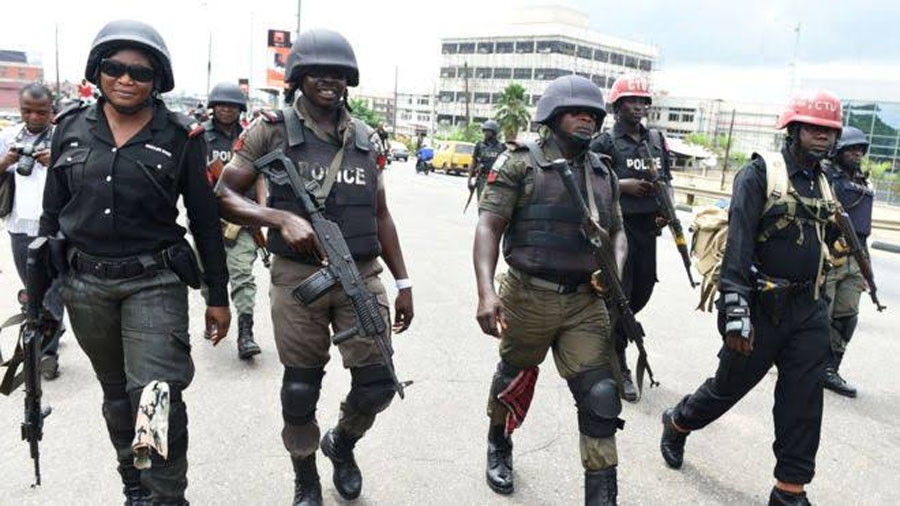
Protest: Police combat ready, deploy 4,200 operatives to FCT strategic places
The police say they are combat ready to crush any form of violence that may result from nationwide protests planned for next Thursday August 1 by some Nigerians against hardship and bad governance.
Indeed, starting with the Federal Capital Territory, Abuja, the police said it had deployed armed operatives to strategic locations.
The FCT Minister Nyesom Wike had earlier warned the organisers of the protest that Abuja would not be available for any rally or demonstration on August 1.
But a statement by Police Public Relations Officer, SP Josephine Adeh, in Abuja on Friday, said the FCT Command had deployed a total of 4,200 police officers to curb any form of violence that might arise from the protest.
The command was reacting in anticipation of the planned nationwide protest by some human rights activists and Nigerian youths, to publicly express their displeasure over hunger and hardship.
The planned protest has since generated massive traction on social media, especially on X.
According to Adeh, the command has proactively deployed material and human resources across the nooks and crannies of the nation’s capital.
The deployment, he said, was aimed at ensuring public safety, protecting protesters, and preventing protests from being hijacked by non-state actors.
The police command said the action was part of visibility policing, involving deployment of explosive ordinance devices (EOD) experts, and personnel at various strategic locations, raids on identified black spots, uncompleted buildings/shanties, stop and search, vehicular and foot patrol, and synergy with sister security agencies.
The Commissioner of Police FCT, Benneth Igweh, while acknowledging the right of residents to protest, advised that it should be peaceful.
He wrote, “The CP vows to resist all forms of violent protest and lawlessness, as the police will not be stampeded into allowing the destruction of public and private properties or loss of lives.
Residents are also advised to be vigilant and take advantage of the police emergency lines, to report suspicious activities through 08032003913, 08028940883, 08061581938, 07057337653 PCB: 09022222352, and CRU: 08107314192.
News
National Assembly urged to create more councils for Lagos

National Assembly urged to create more councils for Lagos
National Assembly has been urged to create more local governments for Lagos State, to meet its current population, social, economic and environmental challenges.
The Red Chamber is also advised to enact laws granting the state a special status for being the country’s commercial city and economic melting pot.
Renowned socio-political activist and critic, Chief Adesunbo Onitiri, made the demands in a statement in Lagos.
The activist recalled that in 1976 when the military government created states and local governments, Lagos and Kano states had 20 councils each.
“Later, Kano State councils increased to 44, while Lagos councils remained at 20. When the Abacha government carved out Jigawa State out of Kano State, Jigawa got 27 local governments, while Kano was still having 44 councils.
READ ALSO:
- Kano bakers summoned over bread price hike
- FG warns LG chairs misusing FAAC funds will face jail term
- PSG not giving up on Osimhen, seek further slash in price
“It is an injustice for Lagos State to remain with only 20 local governments till today, despite its gigantic social, security and economic problems,” Onitiri said.
He recalled that when the then Governor of Lagos State, now Nigeria’s President, Asiwaju Bola Ahmed Tinubu, created 37 additional councils in 1999, Chief Olusegun Obasanjo, then President, seized Lagos State federal allocations for two years.
He said Lagos State through the then Attorney-General, Prof. Yemi Osinbajo, sued the Federal Government, and the state government won the case against Federal Government at the Supreme Court.
He regretted that till now, National Assembly has not done the needful to enact a law to accommodate the 37 local governments created by Lagos State Government.
News
FG warns LG chairs misusing FAAC funds will face jail term
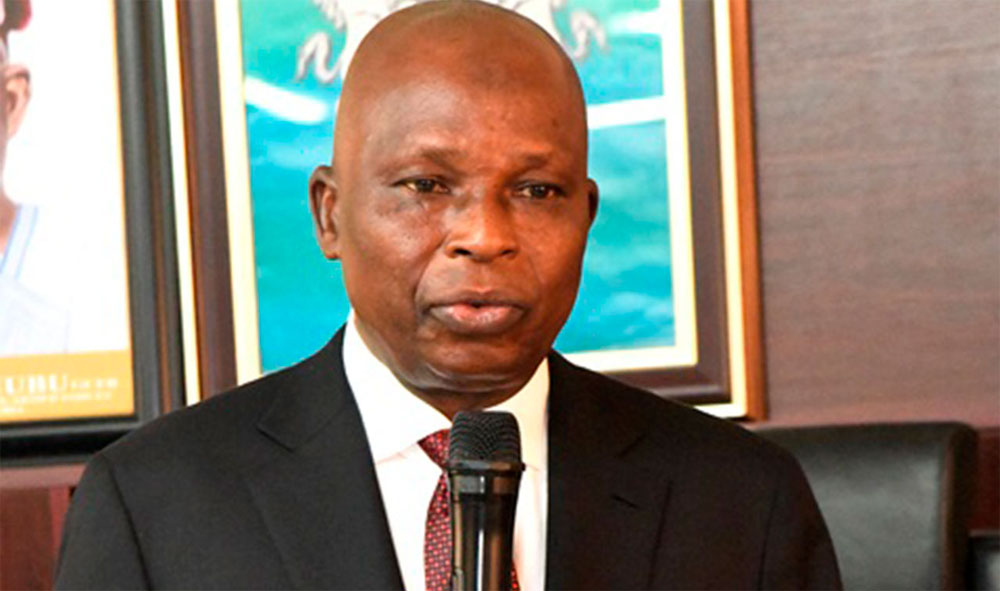
FG warns LG chairs misusing FAAC funds will face jail term
The Federal Government has threatened jail terms for Local Government Area chairmen who tamper with Federation Accounts Allocation Committee funds.
Lateef Fagbemi (SAN), the Attorney General of the Federation and Minister of Justice, made the announcement yesterday at the Human Rights Writers Association of Nigeria’s 17th annual lecture event in Abuja.
He stated that none of the chairmen have immunity and will be imprisoned if they tamper with funds designated for the development of their areas. Fagbemi stated, “We have a situation on our hands; I know that it is still there; the conduct of elections must be done by the states.”
“But the distinction is this: don’t forget, the governors have immunity, the local government council chairmen or councillors, they have no immunity, so they have to choose between dealing with the funds of the local government as they like and risking going to jail. The choice is theirs (LG chairmen).
“If they want to tamper with these funds and end up in jail, it is their choice. If they want to write their names in letters of gold, activities like construction or road upgrades must be returned to the local government. They don’t all have to come to Abuja.
READ ALSO:
- PSG not giving up on Osimhen, seek further slash in price
- Saudi duo to bid for Osimhen amid PSG stalled deal
- FG rolls out fresh plans to revive local manufacturing, create 4.4 million jobs
“If they stay at the local government, we will be able to reduce the level of insecurity that we have in Nigeria today. What obtains offshore is that the security agents are able to perform optimally because of information that comes to them from members of the public and usually it is from the grassroots.”
The minister said the federal government opted to use the supreme court to achieve local government autonomy due to the challenges it will face at state assemblies, stressing that any speaker who would have supported the cause will not survive the tenure or lose his reelection.
The Minister stated that for over two decades, local government administration in the country has been in comatose with state governments not remitting funds meant for the local governments.
Fagbemi, who urged security agents in the country to stop keeping suspects in detention beyond the period allowed by the constitution, added that detention without any court order will no longer be tolerated as appropriate sanctions will be applied to those found guilty of contravening the law of the land.
On his part, the National coordinator of HURIWA, Comrade Emmanuel Onwubiko, urged the federal government to cut down on the cost of governance.
He blamed corruption for the insecurity and high unemployment rate in the country, which is responsible for impending protests in the country.
FG warns LG chairs misusing FAAC funds will face jail term
-

 News3 days ago
News3 days agoNLC can’t withdraw from protest it didn’t organise – Ajaero
-

 News3 days ago
News3 days agoNorthern group attacks Reps Minority Caucus for demanding Nnamdi Kanu release
-

 News3 days ago
News3 days agoMinimum wage: Akpabio says domestic workers can’t earn less than N70,000
-

 News3 days ago
News3 days agoFG unveils training programme for 1,000 Nigerians in AI, blockchain
-
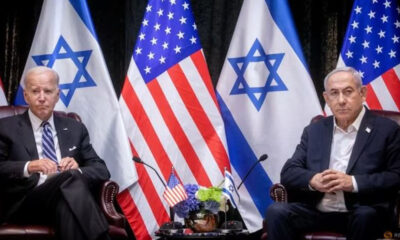
 International17 hours ago
International17 hours agoNetanyahu, Biden hold talks over tense Gaza ceasefire
-
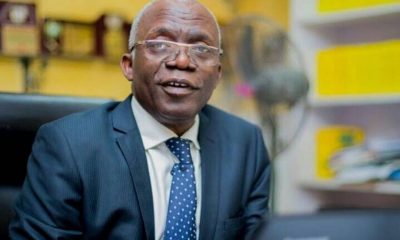
 News3 days ago
News3 days agoFalana to FG: Threatening Nigerians won’t stop mass protest
-
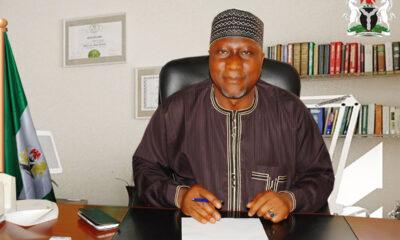
 metro1 day ago
metro1 day agoNERDC Executive Secretary Prof Ismail Junaidu slumps, dies
-

 metro3 days ago
metro3 days agoPastor remanded for allegedly defiling teenager, attempting abortion





